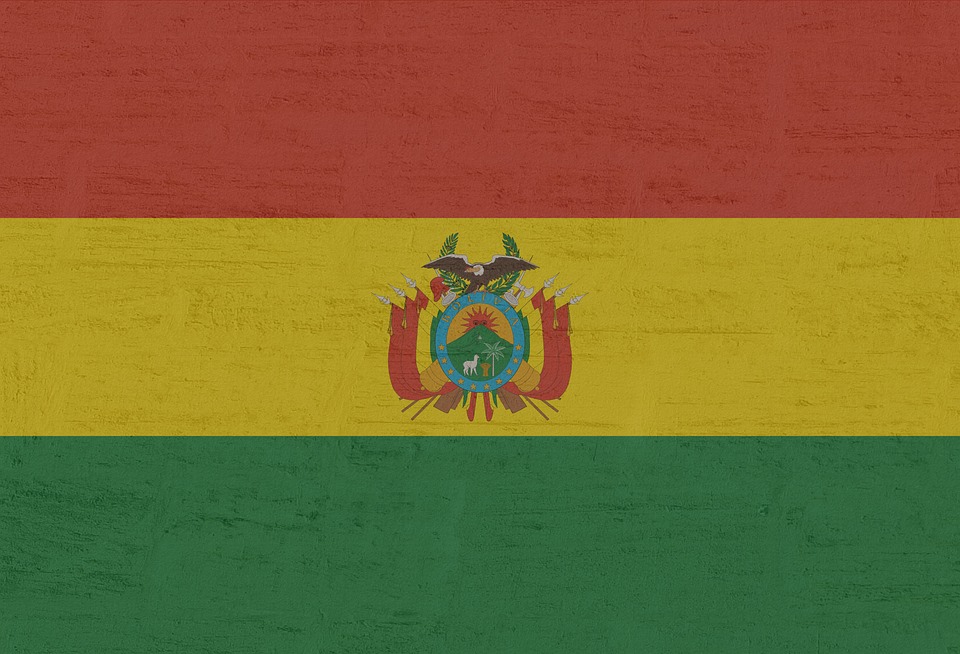UPDATE 1-'Bolivia is shattered': Election crisis leaves deeply divided nation

- Country:
- Bolivia
From Bolivia's capital La Paz high in the Andes to the steamy city of Santa Cruz in the eastern lowlands, weeks of protests have undone leftist President Evo Morales' grip on power and left his South American nation deeply divided. At least three people have been killed in street battles that erupted after Bolivia's opposition accused Morales of rigging an Oct. 20 election, and culminated on Sunday with Morales resigning, ending his near 14-year rule.
The turmoil had hammered the country's shaky economy, damaging its image with global investors. Now it has laid low Latin America's longest-standing leader, a survivor of the region's leftist "pink tide" who swept to power in 2006 as Bolivia's first indigenous leader. In a damning report, the Organization of American States (OAS) said on Sunday that Morales' election victory should be annulled due to irregularities and a new ballot held.
The OAS announcement sparked off a dramatic day as key allies - including minister, regional governors and government legislators - stepped down. The military also called on Morales to resign for the good of the country. Morales - a 60-year-old former union leader who remains popular with many Bolivians, particularly in poorer rural areas - had earlier agreed to the new vote, but for many around the country that was not enough.
Amid clashes in the streets between supporters of Morales and opposition protesters, some said they could see no easy resolution to the worst crisis in decades in the nation of 11 million people. "Bolivia is shattered. We all hate each other," said Sandra Patiño Huitron, 46, a receptionist in Santa Cruz, the nation's largest city. She said that despite showing early promise, the Socialist leader had proven to be a disappointment and Bolivia needed a new path forward.
"If we continue like this, we will be worse than Venezuela," Patiño said, referring to an economic and political crisis in another left-leaning South American nation that has driven more than 3 million inhabitants to flee in recent years. Opposition leader Carlos Mesa, who came second in October's vote, said earlier on Sunday that Morales should step down and called for demonstrators to remain "mobilized" until the crisis was resolved.
Morales - who has overseen more than a decade of solid economic growth and used taxes from mining and natural gas projects to build roads and schools - had slammed the opposition and in particular protest leader Luis Fernando Camacho, accusing them of stoking unrest and undermining the constitutional order. Camacho, a civic leader from Santa Cruz who has become an opposition icon, said on Sunday that protesters would only return home once democracy has been restored.
'CUSP OF CRISIS'
Bolivia's opposition accused the charismatic Morales of clinging to power and trampling term limits after he ignored a 2016 referendum in which voters rejected his request to run again in this year's election.
Morales appealed to Bolivia's top court, packed with government loyalists, which struck down term limits allowing him to run for a fourth straight mandate, a move that angered even some of those who supported him before. The Oct. 20 election was marred by allegations of fraud after an unexplained halt to the vote count was followed by a sharp swing in the president's favor.
Since then Bolivia has been in crisis, with many cities shut down by roadblocks, some borders closed and government buildings picketed. Lucio Ilray, waving a Bolivian flag as he protested in La Paz, said he wanted to avoid the country slipping into "tyranny".
"Bolivia is a free and sovereign country. We are fighting for our democracy," he said. Daily marches and riots have left public buildings shuttered and tear gas hanging over La Paz's central Murillo plaza. There are regular late-night clashes between protesters on both sides armed with slingshots, clubs and even sticks of dynamite.
In a setback to Morales, Juan Carlos Huarachi - the head of the Bolivian Workers' Confederation union group - had dropped his staunch support for the president on Sunday and urged him to consider stepping down if it would help restore peace. Morales had been defiant, insisting that the standoff was not about him but about the need for a government of "the people" to remain in power.
On Sunday, however, he said Bolivia needed "new political actors". Morales' departure deprives the Left of a powerful icon in Latin America. Argentina's Peronist President-elect Alberto Fernandez, as well as Venezuelan President Nicolas Maduro and government officials from Cuba and Mexico, had earlier voiced support.
Morales, in a sometimes emotional resignation speech, decried a "civic coup" against him and said that while he was stepping down, it was not the end. "I want to tell you sisters and brothers, the fight does not end here, the humble, the poor, the social sectors, patriotic professionals we are going to continue with this fight for equality and for peace," he said.
(This story has not been edited by Devdiscourse staff and is auto-generated from a syndicated feed.)
ALSO READ
Chile president recalls ambassador in Venezuela for consultations
Chile president recalls ambassador in Venezuela for consultations
Chile says killing of Venezuelan opposition figure in Santiago was political
US meets Venezuelan officials to express concerns over electoral process, official says
Chile says killing of Venezuelan opposition figure in Santiago was political










